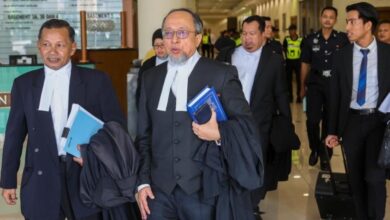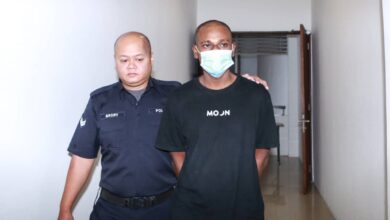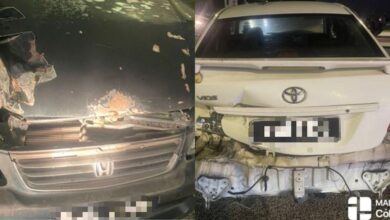Study data before rolling out another booster’

Experts believe it is best to “wait and see” before adding a second Covid-19 vaccine booster shot to the National Covid-19 Immunisation Programme.
They said despite several countries having rolled out a second booster dose, Malaysia should collect and study real-world data on the first booster shot before deciding on another jab.
Datuk Dr N.K.S. Tharmaseelan, who is a former Malaysian Medical Association president, said the availability of real-world data on Covid-19 trends would help determine if the Omicron variant was well-covered by the first booster dose and for how long.
“Although the necessity of three doses is becoming apparent, it does not predict or say how long that protection lasts with antibodies waning over time. Whether a fourth dose, or second booster, will eventually be needed to combat this and if so, when it will be administered, remains unknown for now.
“Some scientists say that a fourth dose may be needed after preliminary research showed that the Omicron variant can undermine the antibodies generated by the Covid-19 vaccine.
“Hungary and Israel are among other countries that have already rolled out second booster doses to offer eligible populations four doses in total. Other countries are following suit.
“Other countries, including Malaysia, are waiting to see the trend for definitive and appropriate action,” he said.

Dr Tharmaseelan said the World Health Organisation (WHO) has yet to endorse a global rollout of booster shots, and had indicated that more data was needed.
“We have now reached the stage where we need to learn to live with this pandemic.
“As we are opening up (economic sectors) and if life has to limp back to some semblance of normalcy, we need, most importantly, adhere to the basics, the strict adherence and enforcement of standard operating procedures (SOP), which has to become a way of life to all of us.
“More than 31,000 Covid-19 patients in the country have died and more will if we do not follow the basics, while getting both vaccines and the booster available for the moment at least.
“Once we have covered all those, then we can of course hand out the second boosters,” he said.

Epidemiologist Dr Malina Osman, said the need for a second booster would depend on the country’s Covid-19 data.
Dr Malina, who is an associate professor at Universiti Putra Malaysia, said the current booster rollout and SOP adherence were key to prevent a surge in cases, like in the Phillippines, Australia and several European countries.
“If there is evidence of risk of infection, namely waning antibodies, increased number of new cases and increased hospitalisation, specifically severe cases admitted to intensive care units despite first booster dose, then another booster vaccine may be needed.
“For the time being, there is no need to think of a fourth dose or second booster shot unless it is for those who had received two doses of the Sinovac vaccine, as mentioned by Health Ministry,” she said.
On Dec 16, Health Minister Khairy Jamaluddin announced that those who had received two doses of the Sinovac Covid-19 vaccine would no longer be considered fully vaccinated if they did not get their booster shot by February.
The move, Khairy said, was among additional measures to prevent another Covid-19 wave due to the threat posed by the more virulent Omicron variant.
Public health expert Datuk Dr Zainal Ariffin Omar said there was no hurry for Malaysia to consider a second booster dose as the current booster programme was under way.
“We should not hurry about the second booster dose.
“The government should conduct a thorough analysis on the need, side effects and risk-benefits to specific groups versus the whole population.
“If we need to compare, Malaysia is in a different situation from Europe, especially on infections during winter, as there are more chances of flu infection during this season there.
“Before we can start thinking of second booster doses, we need to complete vaccinations for children and adolescents first,” he said.
Dr Zainal Ariffin, who is also chairman of the Volunteers for Community Engagement and Empowerment for Covid-19, also called for the formation of an independent technical committee to address vaccine hesitancy if a second booster dose becomes necessary in the future.
Epidemiologist Prof Dr Jamalludin Ab Rahman of the International Islamic University Malaysia said there should be a balance between national and global protection with regard to Covid-19 vaccine booster doses.
“The pandemic will end when all countries attain good vaccination coverage. The aim is to reduce morbidity and mortality among those unvaccinated and more importantly, reduce the possibility of a new variant emergence, which was more likely from unvaccinated individuals.
“Data has shown that boosters can restore antibody levels four to six months after the second dose (of the vaccine).
“However we are not able to accurately determine if the third dose of the same vaccine can curb the Omicron variant and its effects.
“Studies have also shown that cellular immunity from the primary doses may contribute to low morbidity and mortality from Omicron,” he said.
Dr Jamaluddin said there was a need for transparency when providing statistics on the side effects of booster shots, and to continue educating the public.
“Medical experts must be united when explaining to the public the benefits over the risk of the vaccines.
“This health education and promotion are important and require the involvement of government and non-governmental agencies as well as communities.”
NST




